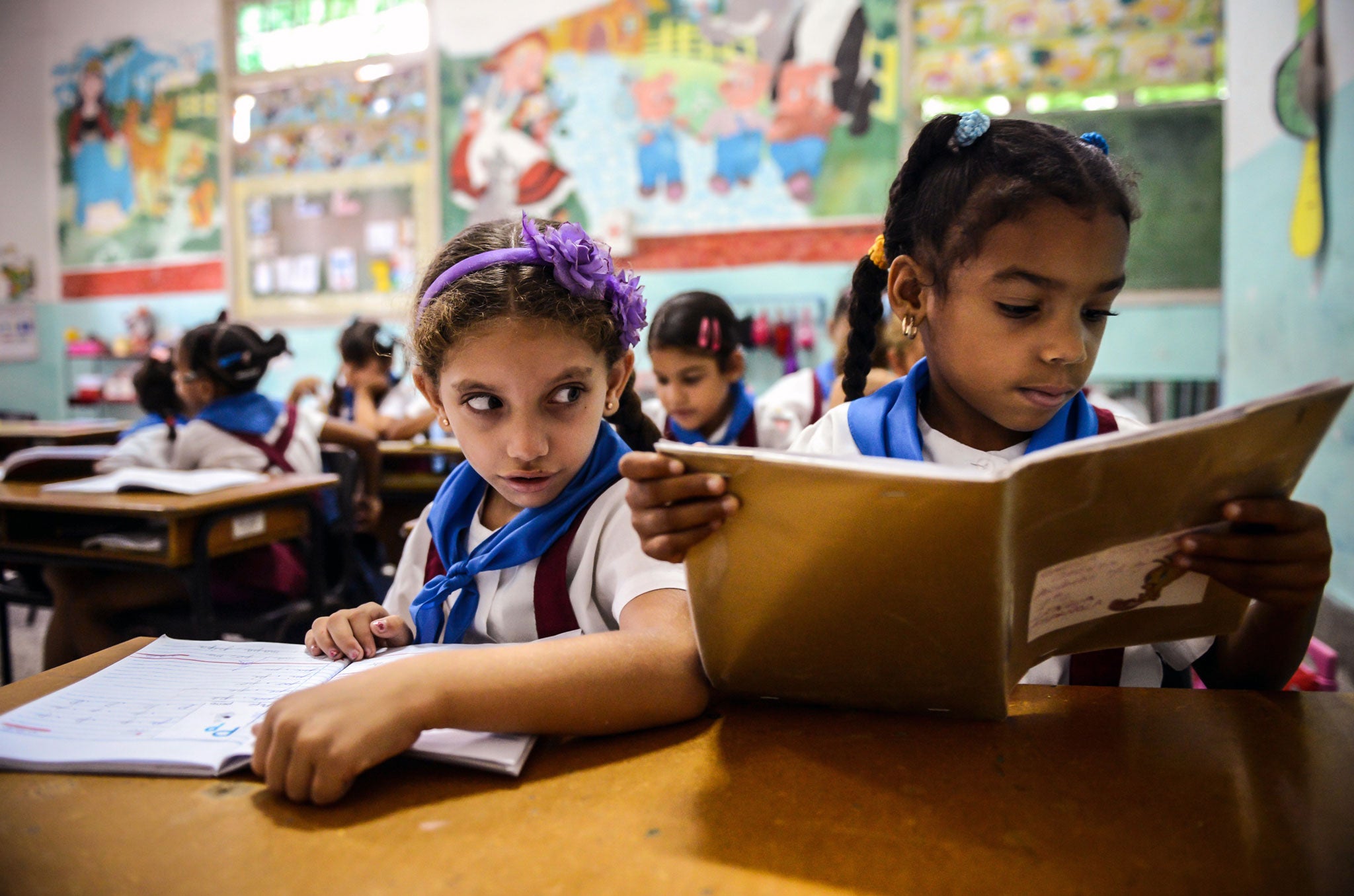Poor reading skills are the most serious weakness in our education system
It should be obvious that reading skills are essential throughout education, so why has this very serious problem only just come to light?


It was reported last week that many school pupils read so poorly at age 16 that they struggle to decipher their GCSE papers. I am not in the least surprised.
‘A child who cannot read cannot learn’ said David Blunkett when he was Secretary of State for Education in the Labour government in the late 90s. He was right of course, although it’s worrying that there should have been a need to state something so blatantly obvious.
So why has so little attention been paid – for decades now – to making sure that every child can read fluently and effortlessly? It is because no government, secretary of state or Department for Education adviser seems to be able to see beyond the mechanics of phonics or ‘sounding out’ systematically to deduce that the letters c-a-t ‘says’ cat and d-o-g ‘says’ dog.
Yes, of course phonics matter. They’re a good starting point for a very young, pre-literate child. Phonics provides useful grounding - but that’s all. Large numbers of words are not spelled phonetically. You have to learn to recognise and remember, say, ‘aunt’ ‘sign’ or ‘awkward’ as you go along. You have pick your way round anomalies such as ‘come’ ‘comb’ ‘tomb’ and ‘tome’ too. And if your name happens to be George or Charlotte …
It should be obvious - even to Department for Education officials - that phonics can only ever be half the story, but it isn’t. Following last week’s report that many GCSE students cannot read properly one of them apparently rummaged about in the DfE statement bank and intoned mantra-like: “ … we are prioritising the teaching of synthetic phonics as the internationally proven method to teach reading effectively.”
He or she, as usual, clearly hadn’t read what the research by the company Renaissance Reading actually said. It was not critical of the way in which all children are now helped to decipher the squiggles on the page. It was concerned about how too many schools then fail to develop reading as a high level skill which has to be practised all the time for the rest of the pupil’s school life.
The teaching of reading does not end once the child knows all the sounds which letters and groups of letters (such as ‘str’ or ‘au’) make and can assemble or interpret them in words – along with some whole word recognition practice.
That is the point at which the real teaching of reading should begin. Every child should be led to books – and books and books – and given quiet time and space in which to work through them. That means school and public libraries. It also means giving reading real status in schools.
Every child should spend part of every day reading silently. Renaissance Reading offers computer-based schemes to encourage that but, although many schools have had some success with these, I find them a bit mechanical and I think you can encourage reading without them.
Actually it’s easy. All a school has to do is to put books and reading at the centre of what it does. Teachers and other adults in schools should be talking about reading and being seen to read themselves. For at least half an hour a day everyone should read – including the adults. Nothing is more important and example works wonders. Wise teachers let pupils choose their own books and don’t worry too much about quality at first. The important thing is to build reading stamina – in a world when there are many distractions.
It’s like swimming. You can learn a bit of theory about strokes, breathing and aqua-dynamics – the equivalent of decoding skills – but you learn to swim by getting into the water and striking out. Only deep end readers are likely to be able to read their GCSE papers confidently and competently.
So why has this very serious problem only just come to light? It’s because we’ve been bamboozled for decades by artificial, moveable contrivances such as ‘expected levels’ and ‘pass marks’ and a woolly, but pernicious, idea that every exam and test must be ‘accessible’ to all, which in practice simply means that everything gets easier and standards fall. So, naturally few people have noticed that reading skills have quietly declined – although the CBI and university admissions tutors have tried from time to time to raise the alarm.
Michael Gove and the coalition seem to be agreed that education has got itself into a very serious muddle. I hope they understand that failure to develop reading skills properly is at the heart of everything which has gone wrong. But I’m not holding my breath.
Susan Elkin’s book Unlocking the Reader in Every Child is published by Ransom and her Encouraging Reading by Continuum.
Join our commenting forum
Join thought-provoking conversations, follow other Independent readers and see their replies
Comments
Bookmark popover
Removed from bookmarks